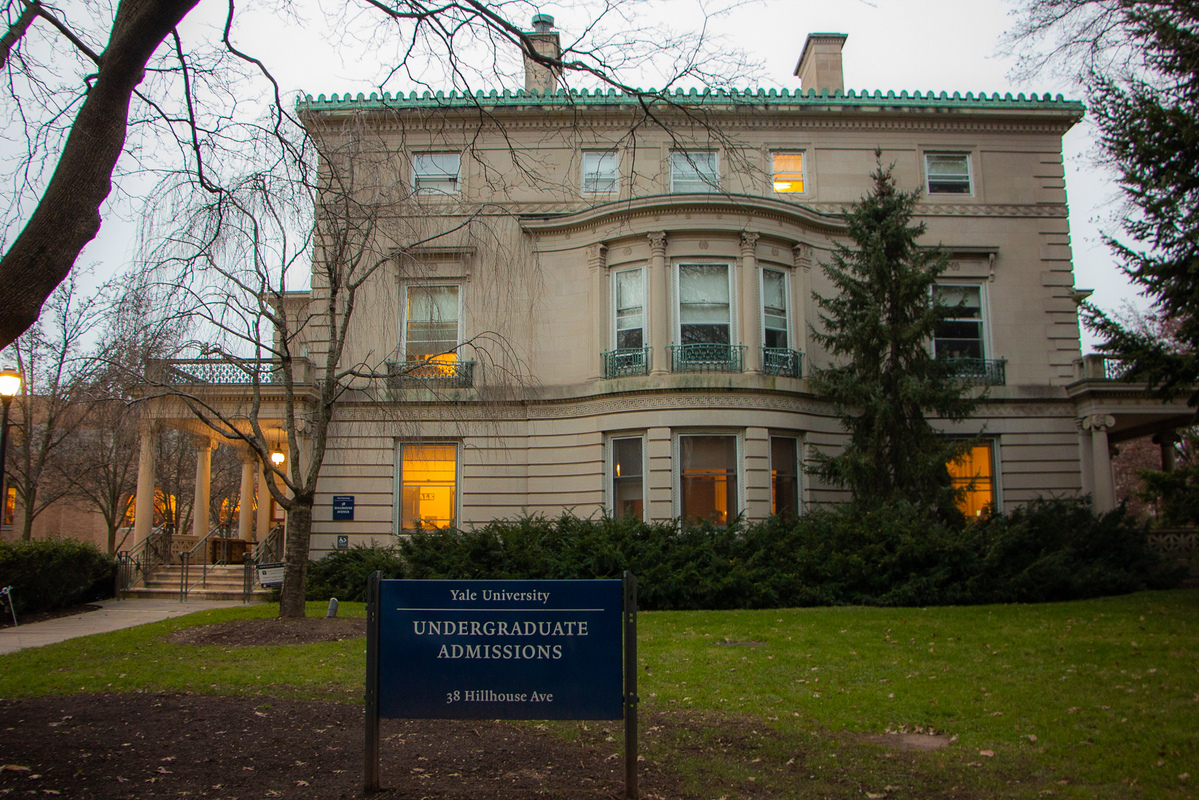Yale welcomes largest-ever cohort of Eli Whitney students
Twenty-three students matriculated this fall in the Eli Whitney Students Program for non-traditional undergraduates

Yale Daily News
About 30 of the over 2,000 students Yale accepted in last year’s admissions cycle were applicants to Yale’s Eli Whitney Students Program.
The EWSP is a unique offering tailored for non-traditional undergraduates who are at least five years removed from their high school graduation and do not possess a bachelor’s degree. Yale received 309 applicants hoping to enter the EWSP for the 2022-23 school year. With an acceptance rate of 10 percent, 23 of the accepted students decided to matriculate to Yale this fall — the largest group to date.
“The diversity of lived experiences our EWSP students bring to campus – as military veterans, entrepreneurs, parents, artists, athletes, and so much more – is remarkable, and the contributions our EWSP students make to our learning community is extraordinary,” wrote Jeremiah Quinlan, Dean of Undergraduate Admissions and Financial Aid.
Eli Whitney students have the option of pursuing either a full- or part-time degree-seeking track, with up to seven years to complete their degree. They are the only students on campus who may enroll part time.
Since they may join the Yale community with college credits from previous educational experience, Eli Whitney students do not necessarily join the Yale community as the equivalent of first-years. Instead, their academic standing is based on how many credits they already possess.
“Most incoming Eli Whitney students initially plan to take classes full time,” said Associate Director of Undergraduate Admissions Patricia Wei. “Once they arrive on campus, many realize that their experience is richer if they can spend more time at Yale. Many will choose to take a lighter load of classes at some point during their time here.”
Wei serves as the director of admissions for the Eli Whitney Students Program as well as the director of veterans outreach. She explained that the EWSP is intentionally designed to be “more flexible” since it is geared toward adult students — and their needs will often differ from those of “traditional-age undergraduates.”
Wei said a common path to the EWSP involves a student joining the military or the workforce directly after high school. Later in life, a student may decide to take college classes at a local school or community college and then feel inspired to consider applying to a university like Yale. She added that the majority of student veterans enrolled at Yale are Eli Whitney students.
Among these students is Andrew Fiske ’26, who spent his time out of high school as an active member of the U.S. Navy and working for a nonprofit organization.
“While most of my Yale classmates were in high school, I was at sea praying for the day my wife’s next letter would arrive,” Fiske wrote in an email to the News. “As I spent years training in Naval warfare, my Yale classmates expanded their academic and artistic interests, many of whom earned international recognition for their craft. The contrast between our past experiences and our mutual determination to positively impact the world makes the Eli Whitney program paramount to the success of Yale’s continued undergraduate student body.”
The Eli Whitney student body is composed of about 50 percent student veterans and 50 percent civilians, Wei said. Another student — currently in military service — is set to join the program this spring, rounding out this school year’s pool of 24 students.
Fiske said he intends to dedicate part of his academic endeavors at Yale to studying trauma-induced mental illnesses. He said he hopes to implement his knowledge into Tails4Troops, a nonprofit he founded with the objective of improving service-impacted lives through animal companionship.
All Eli Whitney students are, like traditional undergraduates, assigned to one of Yale’s 14 residential colleges — Fiske is in Silliman — and are offered the option of living in graduate housing. Fiske and his wife, Andrea, made the personal choice to live off-campus.
In recent years, the University has committed to further developing the Eli Whitney program and veterans admissions, as the University Cabinet discussed in February.
University President Peter Salovey also emphasized the importance of bolstering Yale’s number of nontraditional students in two separate emails, one in October 2021 and one in October 2020.
Last November, the University announced an expansion of its financial aid offerings for Eli Whitney students. Starting this school year, Yale meets 100 percent of demonstrated financial need for Eli Whitney students, which can include expenses related to tuition, housing and meals as well as an estimate for personal expenses, such as books and travel.
Previously, financial aid for Eli Whitney students covered at maximum the tuition cost for the number of classes in which a student is enrolled, with additional scholarships offered for weekday lunch and housing.
Yale introduced a child care subsidy for Yale College students with dependent children in October 2021. This policy disproportionately assists Eli Whitney students. At the time when the policy was implemented, about a quarter of Eli Whitney students had children under 18.
The Eli Whitney Students Program, according to its website, began in 2008.







